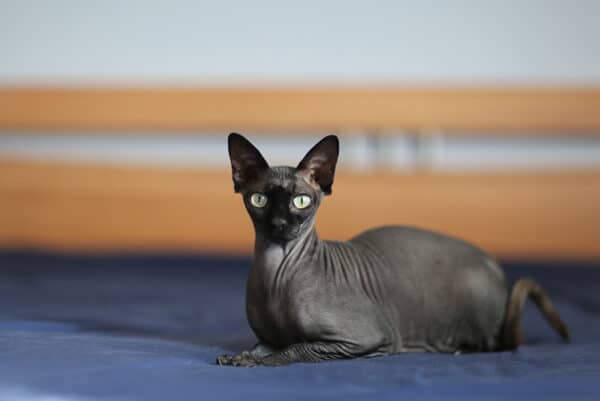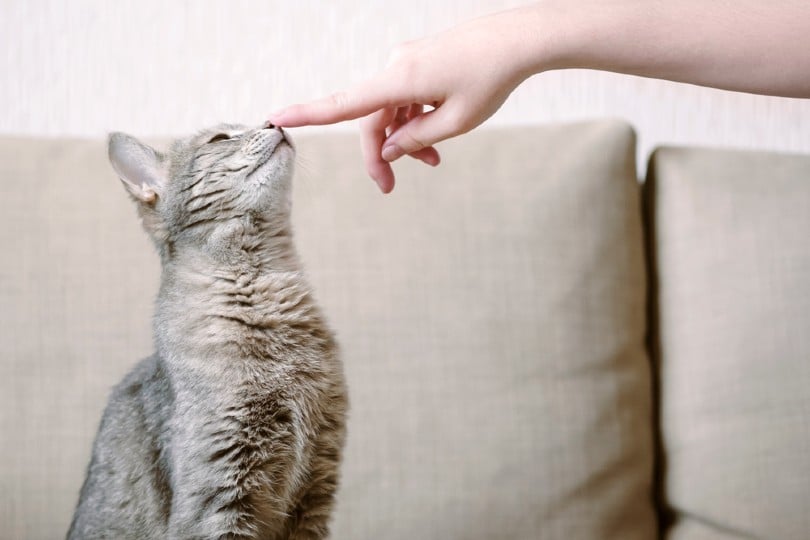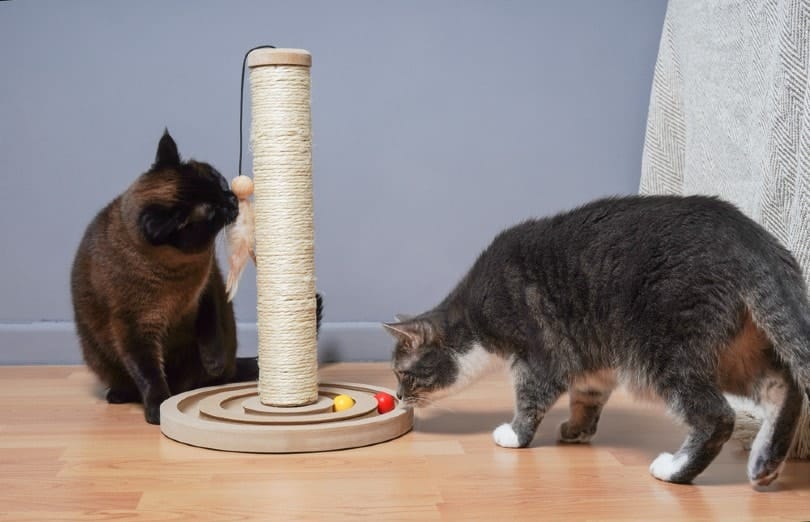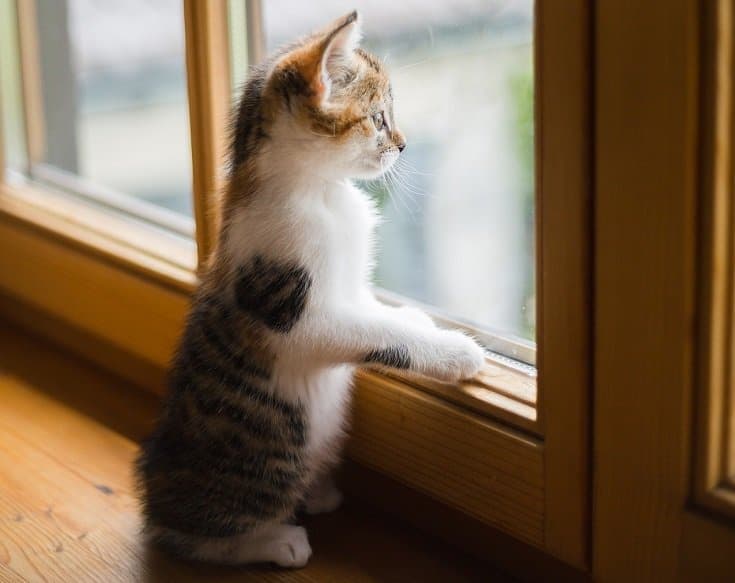While your beloved cat feels connected to you, he won’t feel bad if he pees or poops outside the litter box, scratches up your furniture, or does something outrageous in your home that creates chaos. Unlike us humans who feel guilt or remorse when we do something wrong, cats don’t feel remorse or guilt so don’t expect your feline to apologize for or feel bad about his bad behavior.
If you want to know more about why your cat does not feel guilt, keep reading!
Cats Are Wired Differently Than Dogs
If you have a dog and have scolded your canine for a naughty deed, he probably showed you that he was ashamed of what he did. Maybe he put his head down and slinked away or perhaps he came up to you with those big puppy dog eyes and asked for forgiveness. It’s easy to see guilt or remorse in a dog’s eyes or in their body language.

It’s a Whole Other Story With Cats
You may think that your cat feels guilty for something he’s done wrong because you notice a physical change like flattened ears, a tucked tail, or a distracted look in his eyes. However, this feline body language is a sign that your cat is feeling fear, and not a sense of guilt.
If your cat takes off with his tail down after you’ve scolded him for something he’s done, like scratching the couch, he’s not feeling guilty. Instead, he’s responding in fear of your verbal scolding and finding a quick place to hide. He probably doesn’t even remember scratching at your couch with his claws any more than he knows it was the wrong thing to do.
Unlike dogs that express their remorse and guilt, cats are wired to live in the moment. This means that they react to things happening to them in real-time. Cats simply don’t have the ability to show remorse or guilt for shameful actions they’ve done in the past.
Your cat isn’t scratching your couch to mess with your mind. He is doing that to sharpen his claws which is a natural, instinctual behavior. So how do you correct the bad behavior if your cat can’t feel guilt? You give him something better to sharpen his claws on, like his very own scratching post.
Is It Still Okay to Scold My Cat?
By now you’re probably wondering if it’s okay to scold your cat when you catch him doing something wrong like scratching the couch. The only time it will be useful to scold your cat is when you catch him in the act of scratching your couch.
If you come home from work and find cat scratches on your couch, it would be senseless to find that cat of yours and give him a chewing out. He won’t have any idea why you’re scolding him, and your behavior may irritate him to the point that he slinks away in sheer confusion.
It’s All About the Timing!
Unless you scold your cat at the exact time he’s doing something wrong, you’ll be wasting your time. Your cat won’t have a clue why you’re raising your voice at him even if you scold him five minutes after the deed was done.
Instead of feeling remorse or guilt, your cat may become confused and scared because of your yelling and may even think you’ve lost your mind! Scolding a cat is all about timing. The bottom line is this: If you don’t catch him red-handed, don’t scold him.

Better Ways to Deal with Bad Cat Behavior
Things like scratching furniture, jumping on counters, and attacking your feet when you walk by are all behaviors motivated by your cat’s natural instincts.
When your cat jumps up on a countertop, he’s doing what wild cats do when they’re hunting prey so they can see what they’re after. Batting at your feet when you walk by is also instinctual. Wild cats often play with their prey, and since your cat is tame, your passing feet are the only available prey in your feline’s life.
The sensible way to handle these types of unwanted cat behaviors is to give your cat plenty of toys to play with. In addition to a scratching post to replace your couch, give your cat some balls or stuffed mice to chase after.

Use Aversive Surfaces & Smells
If your cat still partakes in these undesirable habits after giving him a scratching post and toys, you can associate something unpleasant with the behavior you’re trying to stop.
Cats don’t like sticky or slippery surfaces so place some adhesive paper or aluminum foil on the surfaces you want to keep your cat off of, like the tops of your kitchen cabinets.
You can also place smelly items around that your cat won’t care for like citrus peels or scented oils that smell like mint or wintergreen. Simply soak some cloth in these smelly substances and place them where you don’t want your cat to go.
Conclusion
You’re never going to get a feline apology from your pet cat when he does something you don’t like, so don’t expect one! Cats don’t feel remorse or guilt like we do.
Unless you catch your cat in the act, there’s no sense in scolding him when he’s done something wrong. Give your feline companion plenty of love and attention and some items he’ll love using, like a scratching post, and lots of fun cat toys to play with!
Featured Image Credit: g3gg0, Pixabay











